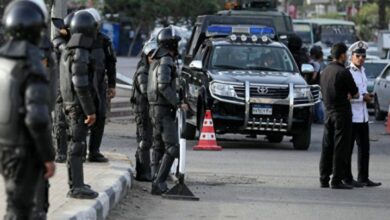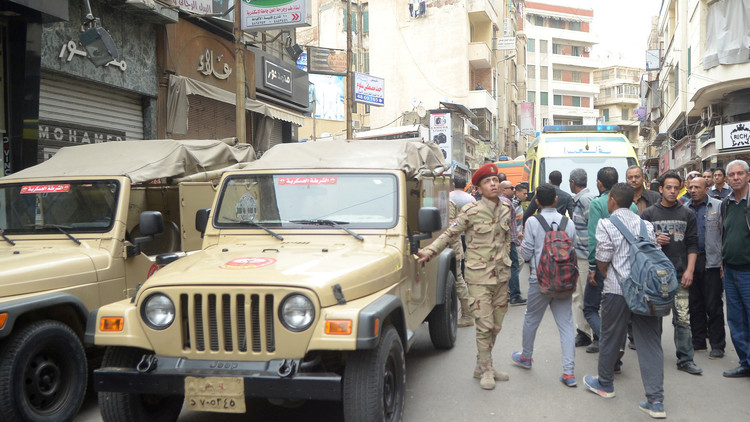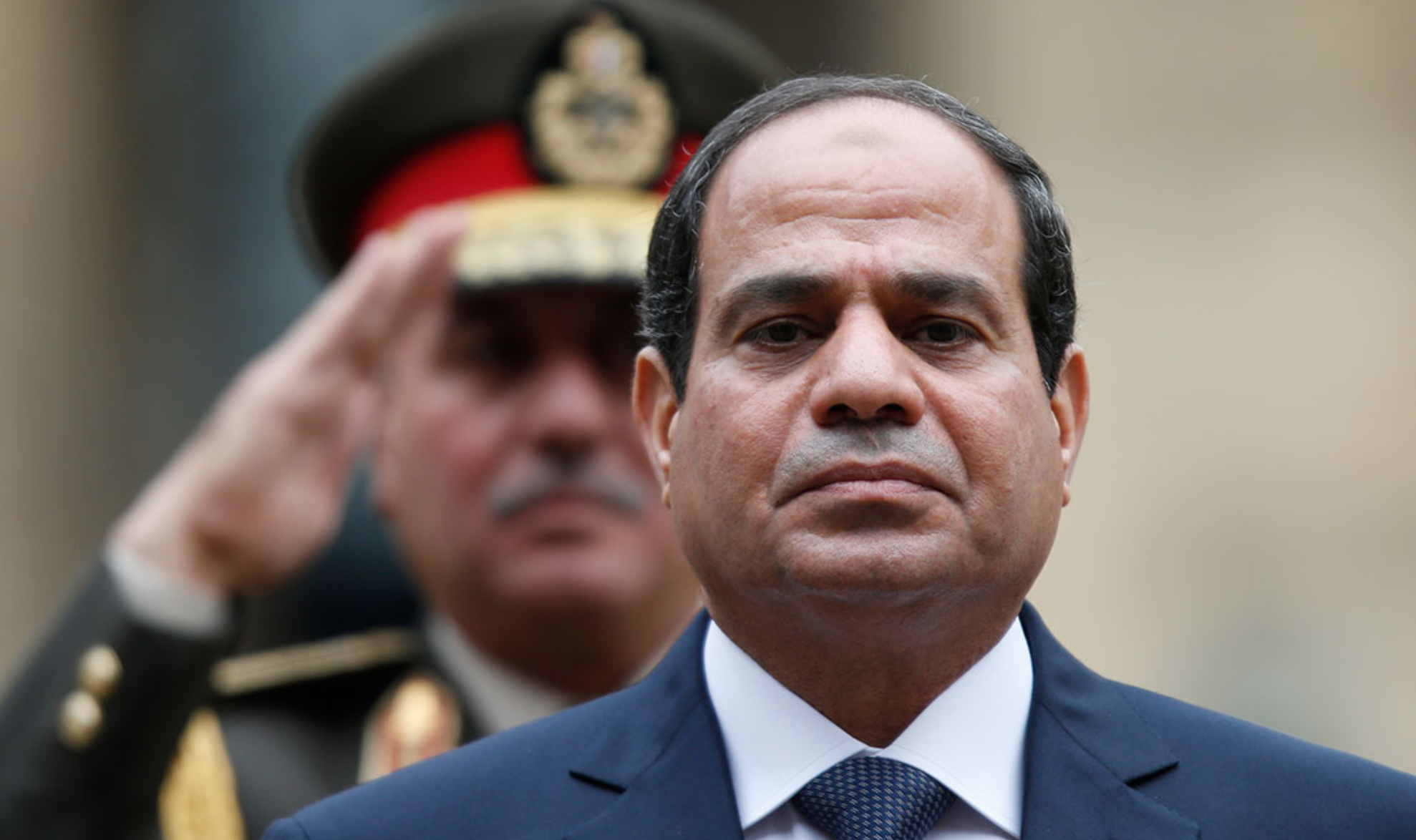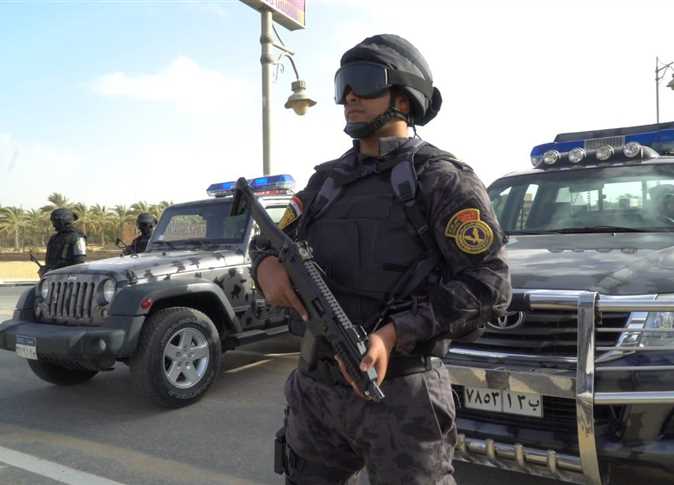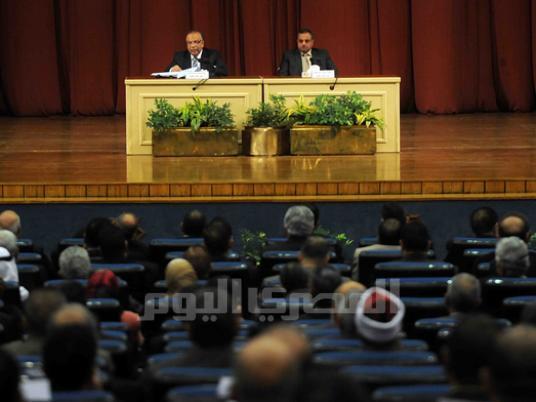
This week, Parliament released a report on Wednesday outlining their achievements after 120 days in office, just around a month after it released a 100-day report.
The oddly-timed report was released in the week following the official announcement that Mohamed Morsy, the Muslim Brotherhood’s Freedom and Justice Party presidential candidate, will be competing in the runoff against Ahmad Shafiq, the last prime minister under toppled President Hosni Mubarak. On the front page of the FJP daily, a catalogue of Parliament’s achievements takes up a quarter of a page and is subtly placed under the paper’s main headline, which also happens to be Morsy’s campaign slogan, “Our strength is in our solidarity.”
The achievements as presented by Parliament Speaker Saad al-Katatny include passing nine new laws, handing in over 8,000 requests for information from the government and raising the pensions granted for the families of martyrs from the 25 January revolution, as well as including some state-sponsored health benefits for single mothers.
Meanwhile, with the state of emergency expiring on Thursday after 31 years of implementation, Parliament was faced with the decision of whether or not to extend it. Mohsen al-Fangary, a member of the Supreme Council for the Armed Forces, said that the ruling council would not interfere with this decision. Rumors surfaced that independent MP Mostafa Bakry had requested an extension of the state of emergency. He later denied this, saying that he only requested an emergency session to look into the security situation in the country. Katatny said during a parliamentary session that the People's Assembly does not have the right to extend the state of emergency, saying that the military council is ultimately responsible for security in the country at the moment. Many MPs spoke out vehemently against extending this state, especially Islamist MPs who were subject to abuse by security forces as a result of it during the Mubarak era.
Parliament is also in charge of reconstructing the Constituent Assembly after their first attempt was met with widespread dismay due to many Islamists members’ quest to control the assembly. The first attempt was halted after an administrative court ruling in April annulled the formation of the assembly, citing unbalanced representation. Many parliamentarians refused the draft law proposed by Parliament’s Legislative Committee on Saturday. As per the proposed law, the assembly would be granted a legal personality independent of state institutions, and tasks Parliament with electing its 100 members. No details were provided on the voting mechanisms of the assembly, which was a bone of contention between secularists and Islamists in Parliament, with the former wanting to push for more than a 50 + 1 passing mechanism.
The Complaints and Suggestions Committee has also amended a law regulating some of Parliament’s roles. The law states that the treasury must present a proposed government budget to Parliament at least three months before the beginning of the fiscal year in July. FJP MP Mohamed al-Beltagy said that the Constitutional Declaration, which technically governs the relationship between Parliament and the executive branch of government, was missing many clauses and stipulations that would allow the People's Assembly to be fully effective, justifying the need for the bill they passed.
MPs also took a positive step in trying to curb some potentially corrupt deals. The Housing and Public Facilities Committee was in session to discuss the sale of lands on the Cairo-Ismailia Desert Road. Independent MP Yasser al-Qady said that 90 percent of corrupt deals by the previous regime involved selling land illegally at artificially low prices to private companies. The lands in question are suspected to have been sold under this premise, and the committee is looking into the legality of their current owners selling the land off before the status of the previous sale is confirmed. The committee also granted MP Salama al-Raqei of the Reform and Development Party his request for information on the safety of some of the urban development projects of the northeast area of the Suez Governorate due to some zoning concerns.
The Budget and Planning Committee held a joint session with the Economic Committee to discuss the potential for Egypt increasing its stake in the International Monetary Fund. Katatny said that such an increase would allow Egypt much more borrowing power from the fund that could reach up to LE200 billion. Head of the Socialist Popular Alliance Party Abul Ezz al-Hariry came out against the proposition, saying that America is in control of the fund and that there are no benefits to being an IMF member. At the session, Finance Minister Momtaz al-Said said that if a bill were to pass to increase Egypt’s stake in the IMF, it would be a valuable indicator that the Egyptian economy is in a good, viable state, and would ultimately act as a spark for the economy.
On Tuesday, Parliament also passed a long awaited bill amending many regulations that have to do with the Ministry of Interior and the police. The bill drafted jointly by the National Security, Defense, and Budget and Planning Committees looks specifically into how policemen are treated and attempts to rectify what many saw as inequities affecting the quality of life of some policemen.
The law puts into effect immediate raises for policemen and regulates their post appointments in a way that is less haphazard than before. It also affords policemen more rights with regard to overtime pay and getting paid extra for working in a job of a differing “nature” from police work. It also includes a stipulation that regulates punitive elements of the law, creating a more streamlined and transparent system of holding policemen accountable. Policemen and informants are supposed to be vetted better to exclude ex-convicts. None of the “achievements” the FJP stated previously included such a comprehensive amendment to better the life of any other group of employees in the public sector; the rights of the policemen came first.
Also on Tuesday, the Constitutional and Legislative Affairs Committee passed a law stipulating that people committing misdemeanor crimes or attempted to commit them for political purposes between 1976 and 2011 should be granted a blanket pardon. The legislation serves primarily detainees from the radical Jama’a al-Islamiya group. MP Amer Abdel Rahim of Jama'a al-Islamiya's Construction and Development Party is behind the law, alongside Hariry.

